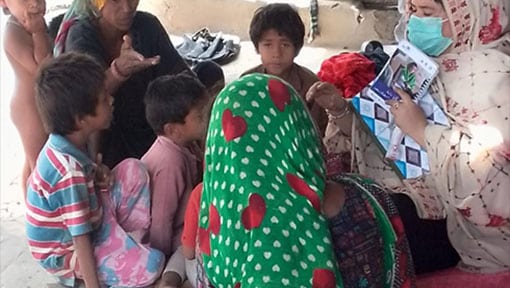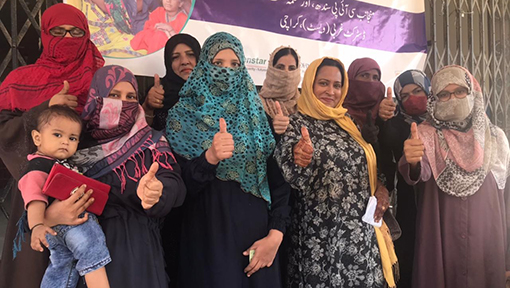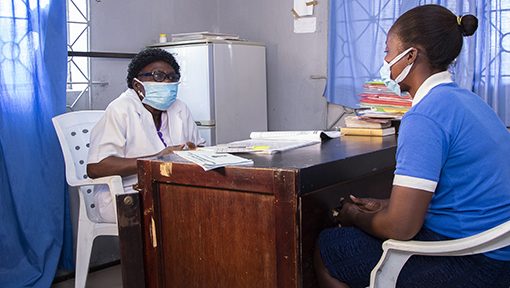Coaching to Effectively Reach More Women and Girls with Quality Reproductive Health Services in Mombasa
We continually coach health providers so that there are more health providers offering quality services at our facilities. And not just in family planning, our coaching approach has also been adapted to other health areas such as immunization.”
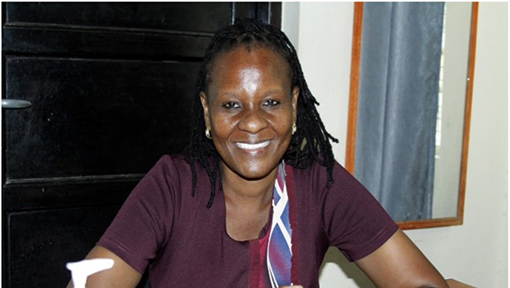
Shali Mwanyumba, a TCI Master Coach in Mombasa County, Kenya.
Shali Mwanyumba is a health provider trained to mentor her peers in health systems management in Mombasa County, Kenya. She is also a Sisi kwa Sisi coach for The Challenge Initiative (TCI), which supports local governments to rapidly scale up sustainable high-impact interventions for family planning and adolescent and youth sexual and reproductive health (AYSRH).
As a Sisi kwa Sisi coach, Shali meets with her peers regularly to coach and mentor them on proven family planning interventions. She shared:
Developing human resources for health that are appropriate, available and qualified to meet the health needs of the County population has been at the forefront of our health strategies.”
According to the County Second Health Strategic and Investment Plan (CHSIP), Mombasa County continues to experience a shortage of health workers across all cadres, which hinders the delivery of health care at all levels. The plan supports the implementation of innovative ways to establish human resource practices to ensure that the county adopts a high-impact model that will maximize the capacity development of available health providers. Shali explained:
Sisi kwa Sisi coaching has made it easier for us to coach our peers and build on existing capacity. The good thing is that the coaches volunteer themselves for the coaching sessions.”
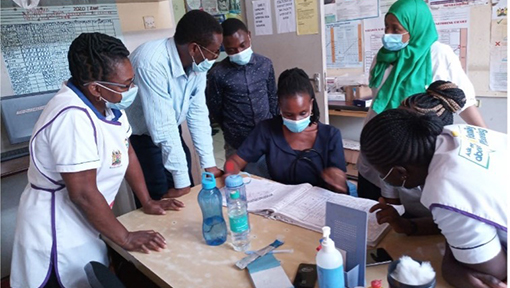
Shali (seated) reviews data from an in-reach.
Shali attributes the enthusiasm for coaching to its flexibility in that the health provider can learn while on the job. The sessions to be covered are agreed upon with the coachee. She adds that these sessions also take into account the competency level of a coachee.
When the County expressed interest in working with TCI towards strengthening their family planning programs, one of the gaps to address was the capacity of health providers in the provision of quality services. Shali said:
Learning by doing increased our knowledge and built our confidence in providing services to our clients.”
TCI’s Sisi kwa Sisi (a Swahili term loosely translated as “from us by us”) coaching approach is an innovative peer-to-peer learning strategy that uses counterpart coaching and mentoring to impart knowledge and skills in the workplace to meet a given objective. A trained health provider at the city level can mentor his or her peers on the implementation of a best practice. Various studies show that most people learn better from those they easily relate with, making the transference of knowledge more effective.

Master Coach Rose Muli (standing) is the Facility In-Charge at Mwembe Tayari Dispensary in Mombasa. After being coached by Shali during an onsite mentorship, she said “The successes of this coaching approach was adapted to our immunization and HIV program. Shali coached us at our facility and we are now able to coach others too.”
The process is structured in a way that the coachee observes a coach implementing an intervention over a period of time, after which the coach observes while the coachee takes up the task and only steps in to assist if needed. This is followed by supportive supervision to the coachee while they gain confidence to perform a given task on their own. Shali added:
We have now developed 30 coaches about who have become “masters” in implementing the family planning interventions. They in turn are coaching their peers until as we say ‘no one is left behind.”
Consequently, the County has been able to allocate part of their AYSRH budget specifically to build the capacity of health providers so that they can offer youth-friendly services. Shali concluded by saying:
And since the county health budget is increasing, we can only hope that some of the monies will go into supporting innovations that strengthen the capacity of health providers.”

